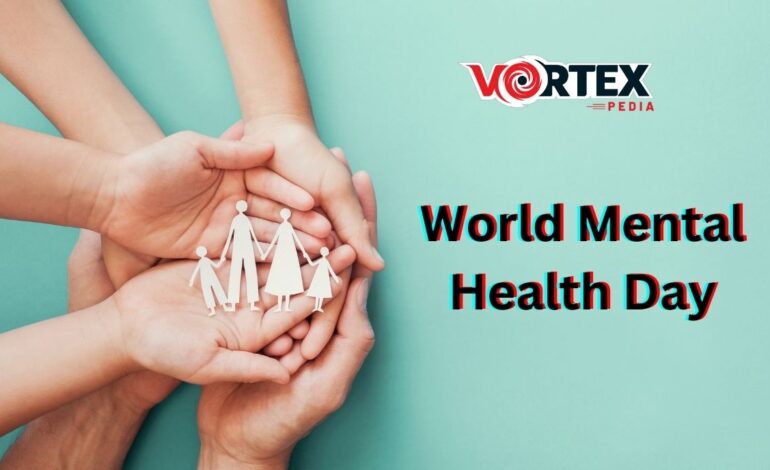
World Mental Health Day – Global Call for Awareness and Support
Introduction
World Mental Health Day, celebrated annually on October 10, is a significant moment for global awareness about mental health issues. It offers an opportunity for individuals, organizations, and governments to come together to support mental well-being. Mental health challenges affect people across all walks of life, regardless of their age, gender, culture, or socioeconomic status. The day serves as a reminder that mental health is just as important as physical health, yet it is often stigmatized or overlooked.
In this article, we’ll explore the importance of World Mental Health Day from multiple perspectives—looking at societal, personal, and professional angles and include real-life case studies to illustrate how mental health awareness has impacted lives.
The Importance of Mental Health Awareness
Mental health encompasses our emotional, psychological, and social well-being. It affects how we think, feel, and act, influencing how we handle stress, relate to others, and make choices. Despite its importance, mental health is often overshadowed by physical health concerns, and many people suffer in silence.
World Mental Health Day seeks to break this silence by encouraging open discussions about mental health issues. It helps reduce stigma, educates the public, and advocates for more accessible and compassionate care. From depression and anxiety to more severe disorders like schizophrenia, awareness helps in recognizing symptoms and encouraging timely intervention.
Case Study 1:- Sarah’s Battle with Depression
Sarah, a 30-year-old marketing professional, struggled with depression for years. Her symptoms began with fatigue, loss of interest in daily activities, and persistent sadness. Despite recognizing these feelings, Sarah hesitated to seek help due to the stigma surrounding mental health in her workplace. After attending a World Mental Health Day event, she decided to seek professional help. Today, Sarah is managing her condition with therapy and medication, and she actively participates in mental health advocacy, hoping to help others break free from stigma.
The Workplace and Mental Health
The workplace plays a crucial role in a person’s mental well-being. Job stress, long hours, and high demands can lead to burnout, anxiety, and other mental health issues. Increasingly, businesses are recognizing the need to support employees’ mental health as a priority.
Employers are now implementing wellness programs, offering mental health days, and creating safe spaces for employees to talk about their challenges without fear of judgment. This change is vital, as mental health issues can lead to decreased productivity, absenteeism, and high turnover rates.
Case Study 2:- Tech Company Implementing Mental Health Days
A tech company in Silicon Valley noticed a rise in employee burnout, which affected both morale and productivity. In response, the company launched a mental health initiative that provided flexible work hours, free counseling services, and “mental health days” where employees could take time off without any stigma attached. This move not only improved the employees’ well-being but also resulted in higher productivity and a more supportive work culture.
Mental Health and Youth: The Rising Crisis
Young people today face unique challenges that contribute to a mental health crisis. With the pressure to excel academically, maintain social status, and navigate the complexities of social media, youth are increasingly experiencing anxiety, depression, and even suicidal thoughts.
Schools and universities have started incorporating mental health education into their curriculums, while organizations focus on providing counseling services for students. Early intervention can help young people develop coping mechanisms that serve them throughout their lives.
Case Study 3: The Power of School Counseling
Liam, a 16-year-old student, began experiencing severe anxiety during his high school years. He found it difficult to focus on his studies, which led to academic underperformance and feelings of failure. After a teacher referred him to the school’s counseling service, Liam began therapy sessions that taught him stress-management techniques. Over time, his anxiety lessened, and he regained confidence in both his academic and personal life.
The Role of Technology in Mental Health Support
Technology has revolutionized the way we approach mental health care. With the advent of mental health apps, online counseling services, and virtual support groups, individuals can now access mental health resources from the comfort of their homes.
Teletherapy has become increasingly popular, especially post-pandemic, as it provides flexibility and anonymity for those who may feel uncomfortable with in-person consultations. Furthermore, mental health apps offer tools like guided meditation, mood tracking, and breathing exercises, all aimed at improving mental well-being.
Case Study 4:- Online Therapy During the Pandemic
During the COVID-19 pandemic, millions of people experienced increased stress, anxiety, and isolation. John, a 45-year-old teacher, found himself feeling overwhelmed and alone while working remotely. His anxiety grew, and his mental health deteriorated. Unable to attend in-person therapy due to lockdowns, John turned to an online therapy platform. He was able to access counseling sessions from home, which significantly improved his mental health. John believes that without the option of online therapy, he would not have sought help.
The Global Perspective: Addressing Inequality in Mental Health Care
World Mental Health Day also shines a light on the disparities in mental health care access worldwide. In many low- and middle-income countries, mental health services are limited or non-existent. The lack of resources, trained professionals, and awareness campaigns means that millions of people are left without the support they need.
Organizations like the World Health Organization (WHO) and global non-profits are working to address these gaps. Initiatives focus on providing training to healthcare workers, setting up mental health services in rural areas, and advocating for mental health to be a part of public health policies.
Case Study 5: Mental Health Support in Rural India
In rural parts of India, access to mental health care is scarce. However, a non-profit organization launched a mental health outreach program in 2019, providing mobile clinics that traveled to remote villages. Trained professionals offered counseling services, and educational workshops helped destigmatize mental illness in these communities. This initiative has reached thousands of people, offering much-needed support and reducing suicide rates in these areas.
Ways to Support World Mental Health Day
There are several ways you can support World Mental Health Day and advocate for mental health awareness:
- Join Mental Health Campaigns: Participate in or organize an events that promote mental health awareness in your community.
- Educate Yourself and Others: Learn about mental health conditions, and share this knowledge with friends, family, and colleagues to help reduce stigma.
- Advocate for Better Policies: Support legislation and policies that aim to improve mental health services and accessibility.
- Practice Self-Care: Mental health awareness starts with self-care. Take time to assess your own mental well-being and seek help if needed.
- Donate or Volunteer: Support mental health organizations by donating or volunteering your time to help those in need.
Conclusion
World Mental Health Day is a powerful reminder that mental health matters to everyone. By increasing awareness, breaking down stigmas, and offering support to those in need, we can create a world where mental health is treated with the same importance as physical health. Whether through workplace programs, school counseling, or global outreach efforts, every step we take helps build a healthier, more compassionate world.








